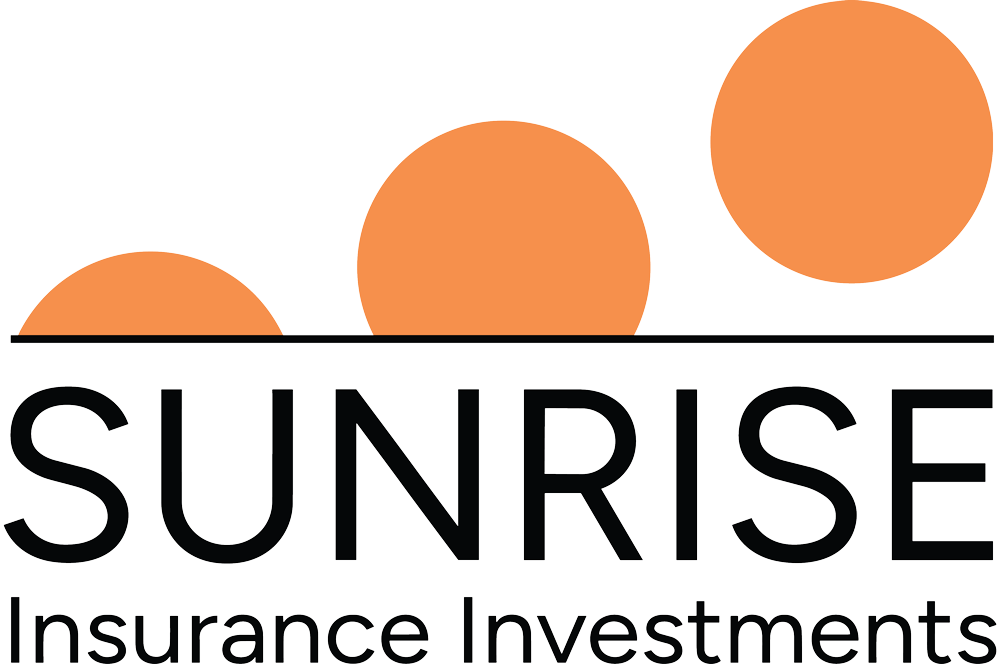Did you know over 70% of people don’t know how much Indexed Universal Life (IUL) insurance can do? It’s a mix of life insurance and a savings account. Policyholders can earn interest based on the stock market, making it a smart choice for growing money. This permanent life insurance offers a chance to increase your cash value and get a life insurance payout.
Key Takeaways
- Indexed Universal Life (IUL) insurance is a type of permanent life insurance that combines a death benefit with a savings component.
- IUL policies allow policyholders to earn interest based on the performance of a stock market index, which is typically reevaluated monthly.
- Premiums for IULs are not fixed and typically increase as the insured ages, but policyholders can adjust the death benefit and riders over time.
- IULs often include a guaranteed minimum interest rate, ensuring that cash value growth does not fall below a specified percentage, providing an answer to the question of what does iul stand for.
- To learn more about IUL insurance and its benefits, reach out to one of our IUL Specialists at 619-735-8737 to set up your IUL today and understand the iul meaning.
- IUL insurance provides a unique opportunity for policyholders to grow their cash value while having a life insurance payout, which is a key aspect of indexed universal life.
- Policyholders can adjust the death benefit and riders over time, adding flexibility to the IUL, which is an essential feature of this type of insurance.
What Does IUL Stand For? Understanding the Basics
Indexed Universal Life (IUL) insurance is a type of permanent life insurance. It combines a death benefit with a savings component. This allows policyholders to earn interest based on a stock market index’s performance.
This insurance offers iul benefits like tax-free death benefits and cash value accumulation. It’s a great option for those looking to boost their retirement income.
Understanding how an iul policy works is key. The cash value grows with a market index, like the S&P 500 or Nasdaq 100. Interest credits are based on the index’s changes after a year.
This means policyholders can earn higher returns than traditional life insurance. But, it also comes with some risk.
Some key features of iul insurance include:
- Cash value accumulation with potential for tax-free withdrawals
- Death benefit that can be adjusted to meet changing needs
- Ability to earn interest based on the performance of a stock market index
- Protection against market downturns with interest floors
IUL insurance can be a valuable part of a financial plan. It offers a unique mix of iul benefits and flexibility. But, it’s important to carefully review the terms and conditions of an iul policy before deciding.
| Feature | Description |
|---|---|
| Cash Value Accumulation | Grows based on the performance of a market index |
| Death Benefit | Can be adjusted to meet changing needs |
| Interest Credits | Based on changes in the chosen index after a set period |
Key Features of Indexed Universal Life Insurance
Indexed Universal Life (IUL) insurance combines death benefits with cash value growth. When comparing iul vs whole life insurance, knowing IUL’s features is key. IULs can grow tax-free, which is great for boosting retirement income.
IULs also let you change how much you pay in premiums. But, it’s important to think about the iul pros and cons before choosing. Here are some main features of IUL policies:
- Death benefit and cash value account
- Cash value growth linked to market indices, such as the S&P 500
- Minimum interest rate guarantee
- Adjustable premium payments
When looking at IUL policies, it’s vital to consider both the risks and benefits. IULs might offer higher returns than whole life insurance. But, they also have more unpredictable premiums. By understanding IUL’s features and weighing the iul pros and cons, you can decide if an IUL policy fits your needs.
How IUL Policies Generate Returns
Indexed Universal Life (IUL) policies use a stock market index, like the S&P 500, to generate returns. This link to the market index can help policyholders grow their money while protecting it from losses. It’s important to understand how IUL policies work to see their iul benefits and how they fit into a financial plan.
IUL policies earn returns through a fixed interest rate and indexed accounts tied to the market. This mix of stability and growth potential is key. Yet, it’s vital to look at the iul pros and cons, including risks and fees.
Key aspects of IUL policies include:
- Guaranteed floor of 0%, protecting against market losses.
- Capped interest earnings, which can vary but are often as high as 10%.
- Participation rates that can limit earnings from market performance.
When looking at IUL policies, weigh the growth potential against fees and risks. Knowing how these policies work and understanding the iul benefits and iul pros and cons helps make informed choices. This ensures the policy fits your financial goals and risk level.
| Feature | Description |
|---|---|
| Market Index Connection | Allows policyholders to benefit from market growth. |
| Protection Against Downturns | Guaranteed floor of 0% protects against market losses. |
| Potential Growth Opportunities | Capped interest earnings and participation rates apply. |
The Unique Benefits of IUL Coverage
Understanding what does iul stand for and the concept of indexed universal life is key. IUL, or iul meaning Indexed Universal Life, combines death benefits with a savings part. This part can help with retirement income.
IUL coverage has many benefits. It’s flexible, can grow in value, and grows tax-free. Some main advantages are:
- Potential returns linked to increases in equity indices, such as the Standard & Poor’s (S&P) 500
- Tax-free capital gains on cash value increases
- No required minimum distributions for cash value accumulation
It’s important to remember that IUL policies have fees. These fees can impact returns. Yet, for extra retirement income or life insurance, IUL policies are worth considering.
| Benefit | Description |
|---|---|
| Flexibility | IUL policies offer flexible premium payments and adjustable death benefits |
| Potential for earnings | IUL policies provide potential returns linked to increases in equity indices |
| Tax-free growth | IUL policies offer tax-free capital gains on cash value increases |
IUL vs Whole Life Insurance: A Detailed Comparison
When looking at life insurance, it’s key to understand the good and bad of each type. The debate between iul and whole life insurance is common. Each has its own benefits and drawbacks.
Whole life insurance offers a fixed premium and a guaranteed death benefit. This means you know what you’re getting. On the other hand, iul policies are more flexible and could earn more, but they also come with more risk.
A big difference is in premium flexibility. Whole life insurance has fixed premiums, while iul premiums can change. This flexibility is great if you need to adjust your payments. But, it’s important to think about the risks and rewards of each choice.
Another important thing is the investment part. Iul policies might offer higher returns, but they depend on the market. Whole life insurance, however, guarantees a certain growth rate for your cash value, usually 2-4%.
Choosing between iul and whole life insurance depends on your personal situation and goals. It’s vital to weigh the pros and cons of each. Also, talking to a financial advisor can help you make a smart choice.
Understanding IUL Policy Structure
An iul policy is a special kind of life insurance. It has a death benefit and a savings part. This part can grow based on the stock market’s performance. The good news is that the growth and death benefits are tax-free. But, it’s important to know the downsides, like fees and market risks.
The policy has a death benefit, a savings part, and can earn interest. Policyholders pay premiums that go to both parts. The savings part can grow based on a stock market index, like the S&P 500.

| Feature | Description |
|---|---|
| Death Benefit | Pays a benefit to beneficiaries upon the policyholder’s death |
| Savings Component | Earns interest based on the performance of a stock market index |
| Potential for Earnings | Offers potential for earnings based on the performance of a stock market index |
When looking at an iul policy, it’s key to consider both sides. This includes fees, limits on growth, and market risks. Knowing the policy’s structure and its pros and cons helps make better choices for life insurance.
Evaluating the Pros and Cons of IUL
Thinking about an Indexed Universal Life (IUL) policy? It’s key to look at both sides. The main pluses include tax-free growth and a death benefit. But, there are downsides like fees and charges.
Here are some good points about IUL:
- Potential for tax-free growth
- Death benefit
- Flexibility in premium payments
But, there are also some not-so-good points:
- Fees and charges associated with the iul policy
- Potential risk of policy lapse
- Complexity of the policy
It’s vital to weigh the pros and cons of IUL. An IUL can offer tax-free retirement income and a death benefit. But, knowing the downsides is crucial.
For a smart choice, talk to a licensed insurance pro. Read the policy terms and conditions carefully.
| IUL Feature | Description |
|---|---|
| Potential for tax-free growth | The policy’s cash value can grow tax-free, providing a potential source of retirement income. |
| Death benefit | The policy provides a death benefit to beneficiaries, which can help cover funeral expenses and other financial obligations. |
| Fees and charges | The policy may have fees and charges associated with it, such as administrative fees and cost of insurance charges. |
Steps to Setting Up Your IUL Policy
Setting up an indexed universal life (IUL) policy requires understanding the process and key factors. What does IUL stand for? It stands for Indexed Universal Life. This type of life insurance offers a death benefit and a savings component. The savings can grow based on a stock market index’s performance.
To start, you’ll need to decide on the death benefit and the stock market index. You’ll also pick how often you’ll pay premiums. An insurance agent will help tailor the policy to fit your needs. Always read the policy terms and conditions carefully before signing. The IUL meaning can change based on the policy and the insurer.
Important factors to think about include:
- Premium payment schedule
- Death benefit amount
- Stock market index selection
- Interest earning potential
Knowing these factors and working with a skilled agent can help you get a policy that suits you. Make sure to understand the policy terms and ask questions if you’re unsure. This way, you can ensure the policy provides the financial protection you need.

Conclusion: Making an Informed Decision About IUL
Indexed universal life (IUL) insurance is a special financial tool. It grows tax-free, protects against market drops, and offers a tax-free death benefit. This makes IUL policies a key part of a solid financial plan.
Understanding IUL’s key features and benefits helps you decide if it’s right for you. It can boost your retirement income, protect your family, or help with smart financial moves. IUL could be a good choice for your financial strategy.
But, it’s important to know the drawbacks of IUL too. Talking to a financial expert about the pros and cons can guide you. With the right advice, IUL can help secure your financial future.





